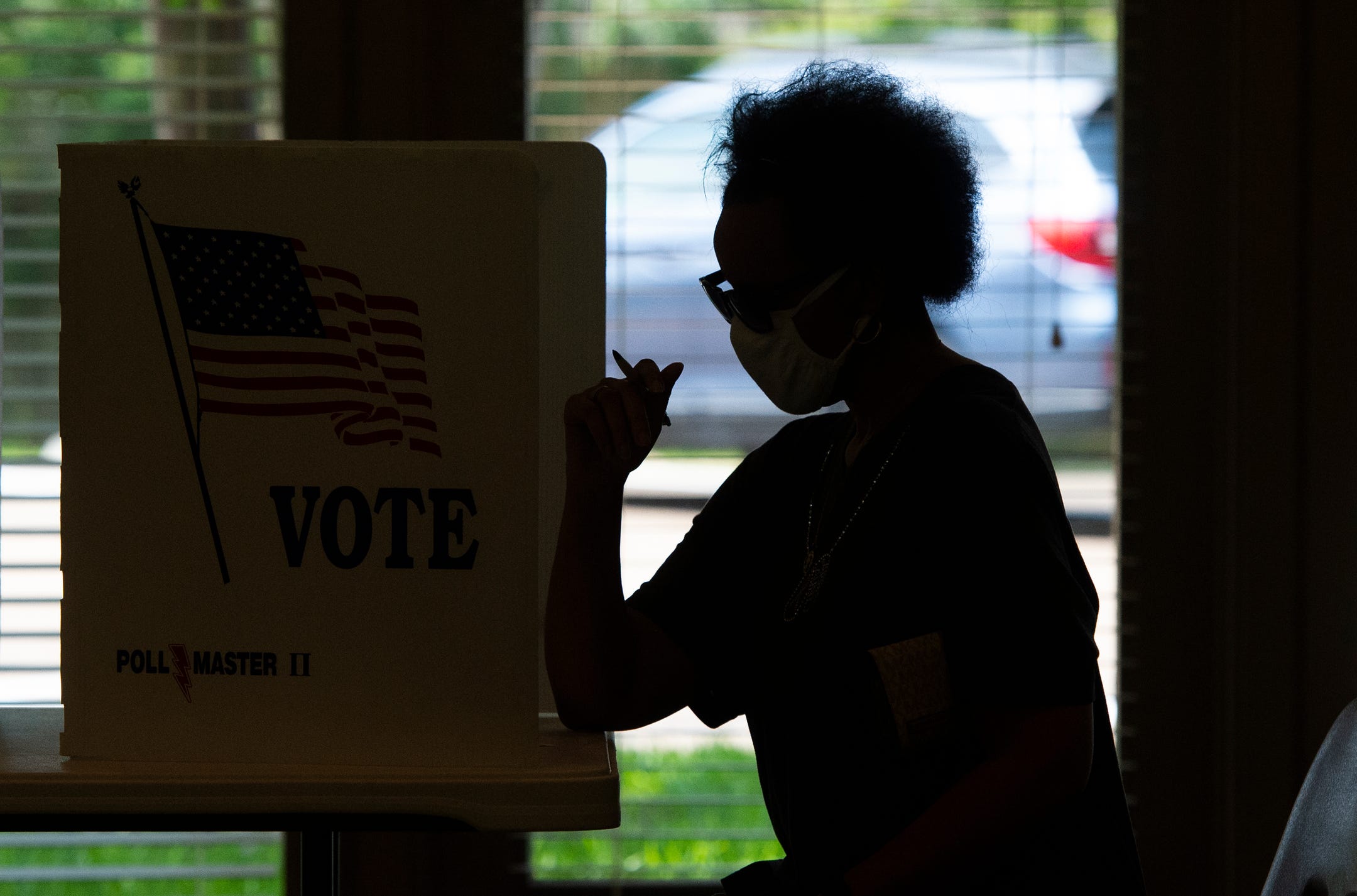
EDITOR'S NOTE: This page is part of a comprehensive guide to voting rights across the U.S. and in Puerto Rico.
The Voting Rights Act of 1965 outlawed discriminatory voting practices adopted in many Southern states after the Civil War, including literacy tests as a prerequisite to voting.
However, Mississippi still has some of the most restrictive voting laws in the United States.
Mississippi is one of only three states to impose lifelong voting bans on people convicted of certain felonies.
The law dates back to Mississippi’s 1890 Constitution, which was put together to specifically disenfranchise African Americans following the Civil War and Reconstruction, according to the Southern Poverty Law Center.
The law banning felons convicted of certain crimes is designed to prevent many Black residents from voting. One in six Black adults or 200,000 people in Mississippi can’t cast a ballot due to the law, according to the SPLC.
The Mississippi Constitution strips voting rights from people convicted of 10 felonies, including forgery, arson and bigamy, according to the Associated Press. The state attorney general issued an opinion in 2009 that expanded the list to 22 crimes, including timber larceny, carjacking, felony-level shoplifting and felony-level bad check writing.

If you can't vote in person on Election Day in Mississippi, you may not be able to vote
Mississippi does not allow early voting, no-excuse absentee voting and online voter registration, which are commonplace in many other states.
However, a few categories of absentee voters may request a mailed ballot. Voters, who are required to be at work while the polling places are open on Election Day or will be out of town, must absentee vote in person. Absentee voters, who are 65 or older, have a permanent or temporary physical disability or are temporarily residing outside of their county of residence may absentee vote by mail.
The Republican-controlled Mississippi Legislature approved a redistricting map during the 2022 legislative session. Under the new plan, the 52-member Senate will maintain 15 Black majority districts and the 122-member House will keep 42. According to the U.S. Census, the state’s Black population is 38%, while the white population is 59%.

Voter fraud blamed for strict rules, despite lack of evidence
Republican leadership in Mississippi has, for many years, used voter fraud as a reason to keep stringent laws like voter ID in place. However, according to the Mississippi Attorney General's office, there is no way of keeping up with the total amount of voter fraud cases. The office said all voter fraud cases are handled through each of Mississippi's 82 county district attorneys offices and it does not monitor those numbers.

Rules around polling places similar to other states
In Mississippi, the following polling place guidelines apply, according to the Mississippi Secretary of State’s office.
Campaigning: It is unlawful to campaign for any candidate or ballot measure within 150 feet of any entrance to a polling place, unless on private property.
Loitering: The polling places should be clear for 30 feet from every entrance of all people except elections officials, voters waiting to vote or authorized poll watchers.
Camera Phones: Voters are prohibited from taking pictures of their marked ballot.